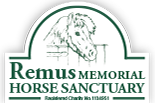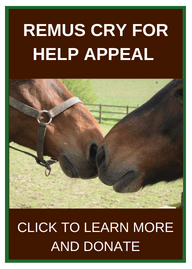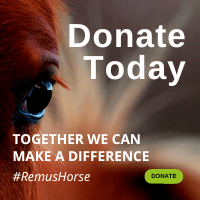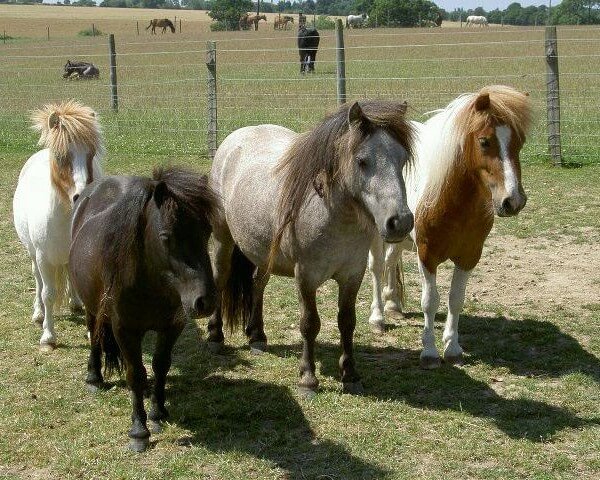
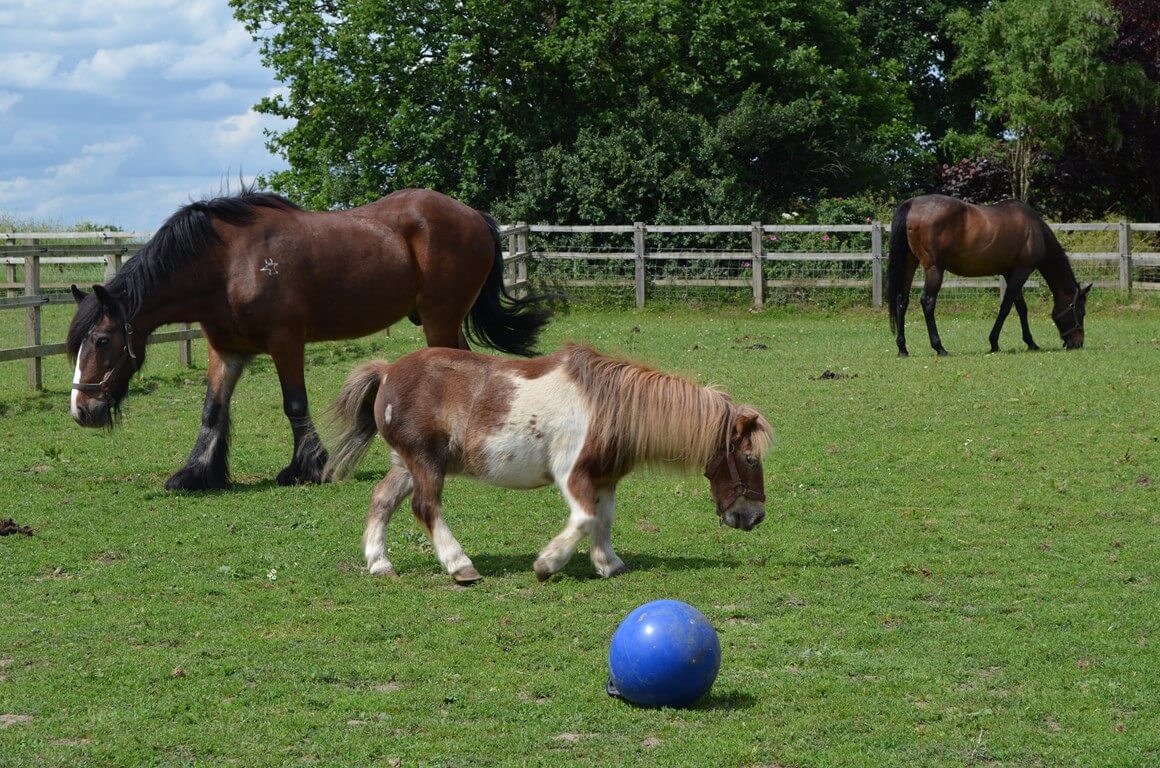
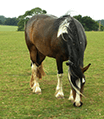
Animal welfare and the basic rights of animals
All animals should have basic rights. Animal rights is the awareness that all non-human creatures are entitled to be in control of their own lives and their own basic interests. The same amount of attention should be given to the suffering of animals as that of humans.
Animal rights also teaches us that certain things are wrong as a matter of principle and that some are simply immoral; humans are never permitted to do them, however humane they may think they are. Philosophers have usually avoided accepting that animals have rights of their own by using these two reasons;
- The consequences can be potentially limiting for humanity
- The idea of animals having rights seems to defy common sense (which is normally dealt with by only giving the ‘higher’ animals rights)
The case for animal rights is as follows: Any adult mammal should be entitled to the same protection and choices as a human being. This simply means the following;
- They share similar levels of biological complexity
- They know that they exist and therefore are conscious and aware of what is happening to them
- They are able to make decisions about what they like and dislike
- The conscious choices that they make result in them giving themselves the best quality of life
- The quality and length of their life matters to them and they therefore try to protect if something is threatening this
Another valid point, which really should be added, is that the value of an animals, as with humans, doesn’t decrease if they become less useful to the world or a burden to others. Therefore animals have the same rights in the same way, for the same reason and to the same extent that humans do.
At Remus, we place great value on our animals no matter what their histories – medical or otherwise and give each and every one the right to live out the rest of their lives in the way in comfort, safety and happiness.
Most of our animals have been rescued from someone/somewhere that they have been mistreated or neglected because the humans taking care of them didn’t put animal rights into practice – they didn’t see the animals as equals who are capable of thinking consciously. Instead they saw them as a burden that wouldn’t disappear.
We make sure that all of our animals know that they very much appear in our thoughts and practices and we aim to give them the best life – similar to that we give to our elderly and sick. If you would like to be a part of what we do here then there are many ways in which you can support us. Give us a call or drop us an email to find out more.
Diseases in Animals
Owners of animals need to be vigilant in the fight against animal disease, regardless of if they are kept as farm animals or pets. Monitoring animals for signs of disease and following good bio-security practices (such as clearing the fields of ragwort which we blogged about last week!) are absolutely essential when you are trying to reduce the risk of disease and indeed attempting to ensure that any disease that an animal may suffer from does not have the opportunity to spread to the other animals in your care.
Animal diseases which do outbreak have to be mitigated and all incidents that occur have to be reported to DEFRA in order for control programmes to be implemented. Diseases do not break out frequently in the UK since there is such a rigorous programme of prevention.
However over the past 10 years there have been over 14 epidemics which included Bird Flu, Bluetongue and Foot and Mouth disease.
Occurrences of disease can cost a lot of money; even the minor outbursts can cost in excess of £2,000,000 with major eruptions potentially costing £3billion!
All animals will carry different diseases from the bacteria which can be found in their manure. At Remus we make sure that we muck out fields and stables regularly and carefully so that our staff are not exposed to any harmful bacteria.
Our animals can be more vulnerable to catching even the most minor, bacterial or viral diseases due to the suffering they have endured in their previous care. At Remus we protect them, make sure their stables are clean; their fields clear of potential danger and keep them in the best health. Due to this, they are less likely to fall victim to disease.
You can be sure that if you sponsor one of our animals, they are in the best hands.
Animal Enrichment
Enrichment for our animals is something we hold with great importance at Remus Horse Sanctuary. We like to ensure that our animals have mirrors in their stables or toys, balls and games in their paddocks so that they have those little luxuries added to their lives.
Behavioural enrichment is a principle which seeks to add to and enhance the quality of a captive animal’s life by providing the environmental stimulation which is necessary for the best psychological well-being. This increases their positive association with the environment in which they are living.
Many of our animals have negative connotations with being in a captive environment following the neglect that they have suffered. When they arrive with us here at the Sanctuary, this is certainly something that we are trying to change. We provide them with a number of different well-being techniques.
There are generally seven different types of enrichment, although not all of them apply to our animals;
- Sensory – visual, auditory, tactile and taste can all stimulate the animals senses.
- Feeding – using different methods of food presentation, feeding can be made more difficult or challenging and more reflective of a natural environment.
- Manipulation – providing items which can be played with using the animals hooves and paws encourages investigatory behaviour.
- Environmental – using different objects to enhance the environment can alter complexities and incorporate more a natural element into their surroundings.
- Social – the opportunity to interact with other animals.
- Training – using positive reinforcement.
- Puzzles – simple problem solving for the animal to reach food or other treats.
All of the above are built into the lives of our animals – although some are used more than others!
Using our knowledge along with the use of our imagination, there are thousands of enrichment options for us to implement into the daily lives of the animals in our care. Some forms of this improvement are simple, other are more expensive and complicated so it is all about choosing the right ones for us.
Environmental Enrichment can be crucial to an animal’s overall welfare. We have spent time researching what is appropriate to apply to our Sanctuary taking into account all that has happened to our animals before they came to us; these experiences will have really taken their toll on the psychological well-being of our rescued animals.
Without your support of our charity we would not be able to continue with this vital treatment to our animals. It really is something that is close to our hearts and makes the animals lives here that much more enjoyable.
June news at the Sanctuary
Here at Remus, we are turning over a new leaf in terms of our social media and website updates and this blog is just one of the ways in which we will begin to do just that.
We have recently set up both a Twitter and a Facebook page so we would LOVE for you to sign in and follow or like us. It will help us help you in terms of keeping you informed as to what is happening at the Charity, upcoming events, different appeals that we have in the pipeline and of course new animals that are joining us here at the charity.
The link to like us on Facebook is https://www.facebook.com/pages/Remus-Horse-Sanctuary/286397441496739?fref=ts
The link to follow us on Twitter is https://twitter.com/RemusHorse
Everyone uses social media and it is such a fantastic way to communicate in this day and age that we are excited about the development within our charity and we hope that you are too and that you will join us on this journey!
Our biggest news recently is probably that we have welcomed a new shire mare ‘Guinness’ here at the Sanctuary who has made an amazing recovery considering just how ill she was. The work we do here really is imperative to these animals.
Importantly to let you all know though, is that we have the next open day coming up on Sunday 2nd June where you will be able to bring your dog to take part in our FUN dog show as well as watch the Ajax Dog Display Team along with Morris Dancing and music from Midnite Blu. There will of course be refreshments and other stalls such as raffles and tombolas; it really is a family event. We like to put on an afternoon to remember when we open our doors to welcome you in.
If you would like to know more about this open day or anything else about the Sanctuary then just get in touch! We hope to see you on 2nd June!
Contact us on facebook, twitter or email at remusoffice@aol.com
RIP Shayne
It is with great sadness that we have to announce that Shayne was put to sleep recently.
Shayne, believed to be the oldest horse in the world died after reaching the age of 51, he had spent his final years at the Sanctuary enjoying himself, spending time out in the fields every day with his friends.
Sadly he collapsed and despite heroic efforts by the staff and Vets it proved impossible to get him back up and we had to make the decision to end his suffering. We will all miss him dreadfully. Sue, our founder has said “Shayne was a happy horse, a lovely old boy and we are proud to have known him. He was great to own and we are delighted to have had him and we shall miss him dearly.’ I believe that his personality and the fact that his previous owners did not overwork him helped him to live for so long. He was such a character.”
RIP dear boy.
Staff at the Row Green Equine and Pet Crematorium in Braintree carried out Shayne’s cremation for free, waiving their usual fee.
Ella Martin, from Row Green, said: ‘It was an honour to be asked to collect Shayne.
We have worked with Remus Horse Sanctuary for many years and as a token to Sue and her team we offered to cremate him free of charge, a fitting tribute.’
Animal lovers everywhere are creating pet photo books
Your pet is special – an extra member of your family. So why not honour it with a pet photobook – a printed and bound book of all your favourite photographs of your pet. Whether you have a dog, a cat or a tortoise, your pet deserves its own photobook.
There’s never been a better time to create a pet photo book as our friends over at The Photobook Store are donating 15% of all sales from our supporters to Remus Sanctuary!!!!
To help Remus Sanctuary whilst creating your Photobook, please just add the offer code: REMUS at checkout.
How to create a great pet photo book
- Take some great photographs of your pet doing the things it loves: your dog jumping to catch a ball, your cat snoozing on the windowsill, your hamster racing round its wheel…
- Take some close-up shots of your pet’s face, and body. Ensure you have a mixture of indoor and outdoor images to give your photobook some variety.
- Download the easy-to-use Photobookstore software.
- Upload your images and arrange them on the pages.
- Don’t forget to add backgrounds and clipart to make your pet photobook extra special.
- Add some comments.
- Order your dog, horse or cat photobook. It will be with you in 7 days.
Your photobook can be enjoyed at any time, and then stored neatly away in your bookshelf. Share it with your family and friends! Your photographs will last a lifetime, protected from dust, scratching and fading.
Pet photo books make fantastic presents for animal lovers. We all love looking at photographs of our dear pets.
Pet photo books are becoming a popular request here at the Photobookstore. We can offer a variety of styles, sizes and colours to make sure that your pet gets the best. Our pet photobooks are easy to create and personalise with our free-of-charge software.
Terms & Conditions: 15% of all photobook and photo canvas sales from Remus Supporters will be donated to the Remus Sanctuary. Ensure that the code ‘REMUS’ is added at checkout, so that Remus receives your donation. Offer code cannot be added retrospectively. This offer cannot be used in conjunction with any other offers or discounts. Offer Expires 31 December 2012.
My holistic work at Remus by Caroline Thomas
I have been a holistic therapist at Remus Horse Sanctuary for many years, giving my time and holistic input for free to help, the beautiful animals there. I have been asked to write a blog about the work that I do, to tell you about the ‘holistic side’ of Remus. The reason that the Remus animals live to such ripe old ages is because Remus is made up of many parts; Vet care, diet specialists, dental specialists, hoof specialists and holistic specialists. I am one of the 3 holistic specialists that Remus works with regularly and I am delighted to now be able to share some of my experiences with you.
Arriving at Remus, I met with Sue and we discussed which Animals needed some holistic care for today. It had been a difficult night for Chester, Sue also had a 3rd year Vet student, who she wanted me to show her what holistic care means at Remus. Entering the field, I found Chester, who watched us as we moved towards him. I explained to the student, that I had not met him before, so was not going to make him feel uncomfortable by moving too close to him. Horses are prey animals, so are very often wary of new people.
The ethos at Remus is that their animals are treated with respect and where possible have a choice and this is the same for their healing too. As a Reiki practitioner it is up to me to offer out a reiki space of healing, should they choose to enter and not to force healing onto them. Yes ‘force’! By placing my hands all over Chester I would for one not be respecting his need for space and choice and also by placing my hands all over a ‘prey’ animal who I have never met before can cause a lot of un-necessary stress. Standing at a distance, I placed one hand on the students shoulder and with the other I placed by my side.
Reiki is a healing energy which helps make animals feel relaxed and chilled and often gives them the space to heal. It is 100% safe and animals love it. I offered reiki into an area between Chester and myself and stood quietly with no expectation as to what Chester would do. Bit by bit Chester moved into this space and stood for a few minutes and then moved off to another part of the field.
It was all very subtle and as I explained to the student, that Chester had been in charge of his own healing and for me I just facilitated this opportunity, should he wish to take it. By placing my hand on her shoulder, she was able to experience reiki first hand. She felt very dreamy and relaxed and could feel and understand what Chester had felt too.
Holistic care at Remus is all about allowing the animals to have choice and therapists to have no ‘ego’
Caroline Thomas
Remus Sanctuary has its first charity shop!
Opened Saturday 3rd March 2012 by MP John Whittingdale.
The shop is Located at Mayland shop parade, Imperial avenue, Maylandsea, Essex, CM36AH.
Our grateful thanks go to Emma Greenfield for opening the shop in our name, we have always wanted a shop and now it is a reality.
Donations of items to sell are urgently needed. Please don’t just throw away unwanted items, donate them to us for our shop.
For donations of items to sell and volunteering enquiries please call Emma on 07530 422 851. Emma will happily come and collect or you can drop at the shop.
World’s oldest horse, Shayne, 51, lives in Brentwood at Remus Sanctuary
His mane is tinged with grey and he’d have trouble clearing a fence.
But that’s hardly surprising because at 51, Shayne could be the oldest horse in the world.
Watch the video on YouTube here.
The liver chestnut Gelding has lived at the Remus Memorial Horse Sanctuary in Brentwood, Essex, since 2007.
And the elderly nag has some senior company after it was revealed that he lives in the same town as Pip the 24-year-old terrier, who is thought to be the world’s oldest dog.
Shayne is still happily trotting around his paddock and is in better shape than many of his stable mates, despite having nearly three decades on most of them.
He is believed to have inherited the title of the world’s oldest living horse following the death of the previous holder in 2004.
The 15 hands gelding is now enjoying a laid back retirement with four meals a day at the 40-acre Remus Memorial Horse Sanctuary in Brentwood.
Sanctuary founder Sue Burton said: “We get people who rescue a horse and they say it is in its 30s and then it knocks them for six when we say we have one in its 50s.”
“Shayne is a really good boy. He is still very active – sometimes we forget how old he is.
I guess his secret to a long life is taking it easy in his old age and enjoying his retirement.”
Shayne was brought to the Remus Memorial Horse Sanctuary in April 2007 after spending many happy years with his previous owner in Chingford, Essex.
He is fed a high-calorie diet consisting of fibre, alfalfa nuts, sugar beet and chaff mixed together and he is also partial to a bit of cabbage to help keep his weight at 480kg.
Despite suffering from some mild arthritis, he is in good health.
The previous title of oldest living horse in the world was held by Welsh/Arab steed Badger, from Pembrokeshire, Wales, who died aged 51, in in 2004.
Shayne does not have a birth certificate but they were given his birth date by his previous owner and have since verified his age with medical checks.
Sue added: “Fifteen used to be regarded as old for horses when I started working with them, but research into medicines means they can live much longer now.
The previous owner brought Shayne to the sanctuary after her other horse died.”
Equine vet Erik Belloy, 46, from House and Jackson vets in Blackmore, Essex, said: “Fifty-one is definitely a ripe old age.”
“It’s uncommon because ponies tend to live a little bit longer than big horses do. Horses do, however, live longer now because of advances in veterinary medicine and the production of their feed.”
A spokesman for Guinness World Records yesterday (Weds) said: “We have not received any claim for the oldest living horse since Badger’s death and we are really happy to hear about the horse you mentioned.”
“The owners could make a claim for the title.”
The oldest horse ever was called Old Billy, who was foaled in Woolston, Lancashire in 1760, and was 62 years old when he died on November 27, 1822.
Open for Dogs Awards 2011
Remus has done it again!
For the 4th year in a row we have just been informed that we have again won the Category MOST DOG FRIENDLY PLACE TO VISIT WITH YOUR DOG. Thank you so much to everyone who voted for us, we really do love to have dogs visit us at the Sanctuary. The Kennel club are impressed with the open house attitude we adopt to dogs at Remus Events. Owners seem so to appreciate the fact that they can have their dogs with them. We run two fun dog shows during the Summer and these are proving ever more popular with the public.
Open for Dogs scheme seeks to redress the balance in what is becoming quite a dog unfriendly world. How many times have you been turned away from events and places to walk, restaurants etc simply because you have your dog with you? In order for the scheme to really make an impact and encourage yet more facilities to welcome our dogs, it is incumbent on all of us with dogs to take great care to respect premises, public places etc, clear up and also respect the views of others who may not quite share our love of dogs.
